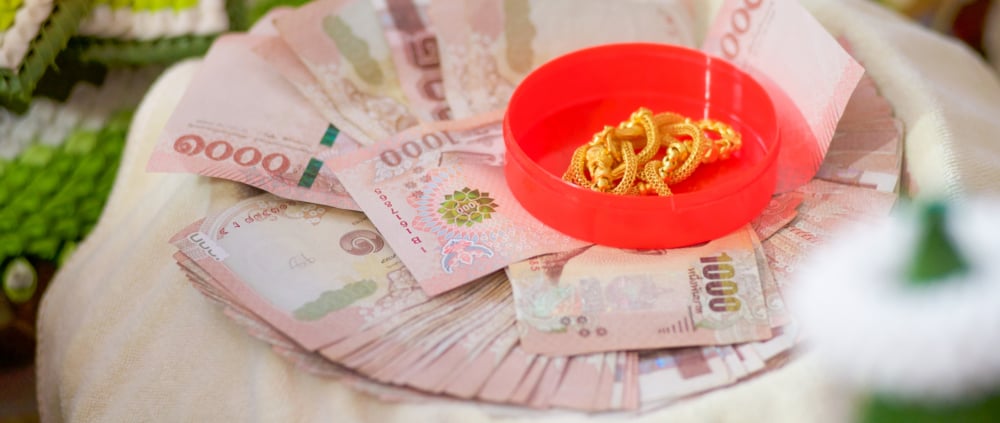Some Rulings Related to the Dowry
Hanafi Fiqh
Answered by Abdullah Anik Misra
Question: Can gold jewelry be given as part of the mahr in addition to cash? Is there a sunnah mahr amount? Also, I was given some cash and gifts for our engagement. Should the cash and the gifts be equally divided?
Answer: Wa alaikum salaam wa rahmatullahi wa barakatuh,
Congratulations on your engagement. Yes, gold jewelry (and other non-cash objects) can be given as all or part of the mahr along with cash.
Mahr is a gift that is given to the bride; it becomes her sole property and should not be taken back. It can be paid at the time of marriage, or promised to be paid on a later date, whereby it becomes a debt on the husband to his wife, which she can subsequently forgive if she chooses to do so out of her free will.
Amongst the wisdoms of the mahr is that it creates appreciation and respect between the spouses, becomes a source of comfort as the woman enters a new household, shows the seriousness of the husband, and gives the wife something to fall back on that is hers, and no one else’s, should anything not go as planned.
Allah Ta’ala says the Quran, “And give (O men!) the women their bridal-gifts with a good heart!…” [al-Quran, 4:4]
The value of the mahr should not be exorbitant such that the groom cannot afford to pay it, or such that it goes into wastefulness or to show-off, though there is no legal maximum amount to be demanded or offered. In some parts of the world, the mahr is set ridiculously high, making it well-nigh impossible for most young men to marry until they have spent their youth saving only for this; in the West, perhaps some young sisters may not know the value of demanding a fair mahr, and thus be deprived of this right. The Prophet (peace be upon him said), “The best of mahrs is the easiest (most affordable).” [al-Hakim, al-Bayhaqi]
It is not blameworthy for a woman to demand a reasonable amount that other women within her father’s family would deserve, considering as well her status, beauty, education and the times and society she lives in [al-Maydani, al-Lubab].
The Prophet (peace be upon him) paid varying amounts of mahr in his marriages; the mahr paid to Fatima by ‘Ali (may Allah be pleased with them) was commanded by the Prophet (peace be upon him), and thus, this amount is often the amount considered when “sunnah mahr” is discussed (this is also called the Mahr Fatimi).
This amount of this mahr is 480 silver dirhams, though there is some difference in opinion on this. One silver dirham is equal to approximately 3.06 grams of silver, so one would calculate the price of 1469.60 grams of silver on the day of marriage to approximate the sunnah mahr. This is taken from a narration in which ‘Omar (may Allah be pleased with him) said:
“Do not go to extremes regarding dowries to women, because if doing so was a noble thing in this world, or piety according to Allah, the most suitable and most worthy of doing it would have been Muhammad (peace be upon him); he did not give dowry to any woman from amongst his wives, nor were his daughters given any dowry, more than 12 uqiyyahs [approx. 480 dirhams]. Truly, a man may increase the dowry until he feels resentment for her within himself while saying, ‘You cost me [everything I own], and I was just a regular man who had no idea what that kind of expenditure was before!’” [Ibn Majah, Sunan, with approximation of the meaning]
As for engagement and wedding gifts, because they are given in varying ways, and it is often unclear who gave it and whether it was meant for one or both spouses, so how the couple divides them often returns to local customs. Amongst the possibilities are that the money is divided equally, or shared to furnishing a new home or to pay off wedding expenses. Gifts can be divided based on whose side of the family gave it, or whether the object seems intended for gents or for ladies. If the gifts were given to one person specifically, they would not have to share it. At any rate, these gifts will soon be forgotten or spent, while the true gifts of an Islamic marriage will endure, insha Allah.
Wasalam,
Abdullah Misra
Checked & Approved by Faraz Rabbani
